Marvel Comic Sales In Freefall In February 2017 — What's Going On?
Every month, Diamond Comic Distributors releases a report on the last month's sales figures.
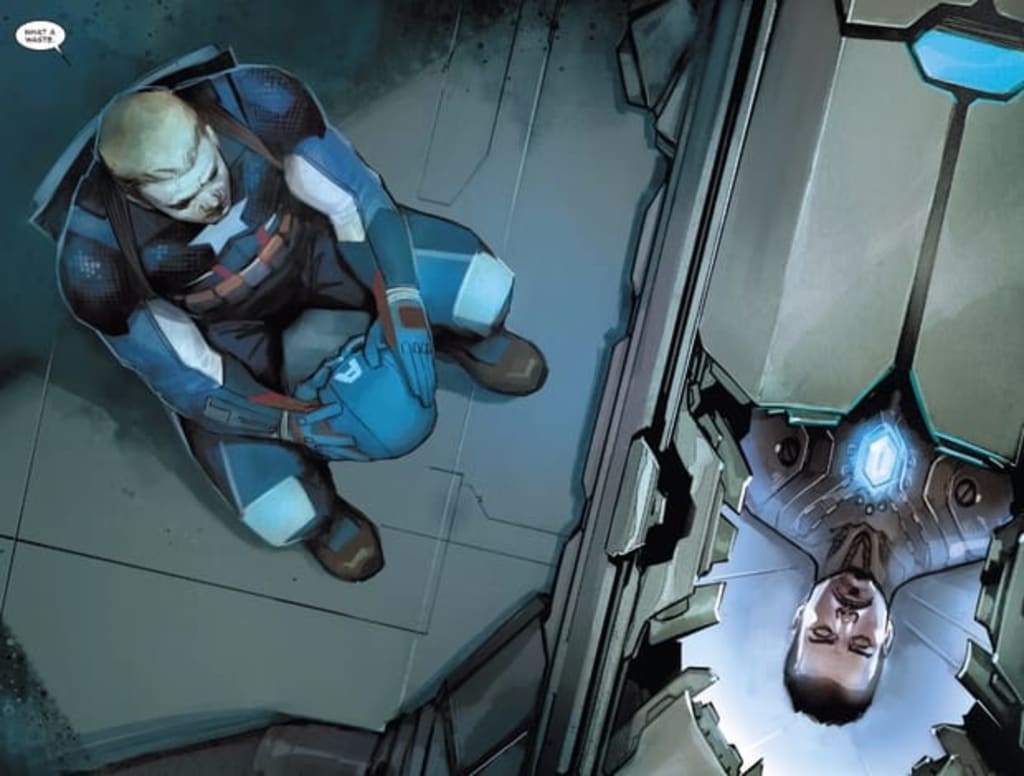
Every month, Diamond Comic Distributors releases a report on the last month's sales figures. These should be taken with a serious pinch of salt — they only reflect orders from the US direct retail market, so they don't include international sales, and there are no figures available for the growing digital market. With all those provisos, though, the sales figures for February 2017 contain some pretty horrific shocks - and they fit into a disturbing pattern...
The February 2017 Comic Book Sales
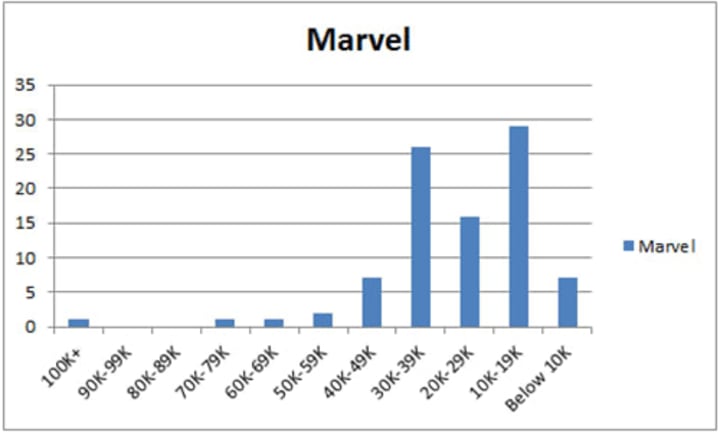
In a normal month, you'd expect to see both #Marvel and #DC with a couple of titles selling over 100,000 copies, with the sales bands then filling out with, say, a handful at 90,000-99,999, and so on. The Comics Beat did an initial analysis for February 2017, though, and the results were shocking. As one of the most analytical sites out there, The Comic Beat have a strong reputation for accurate number-crunching, and they'd never seen Marvel's numbers shifted so far down the chart.
Let me give you an idea of just how bad those sales figure are; last month, over 45% of Marvel titles sold less than 20,000 copies in the domestic US market. While some of those books are supported for trades, or benefit from deals with the likes of Scholastic, for most series that's the 'danger zone'. Traditionally, if your book is routinely selling less than 20,000 copies, you're in serious danger of cancellation. And last month, that was true of over 45% of Marvel's entire range.
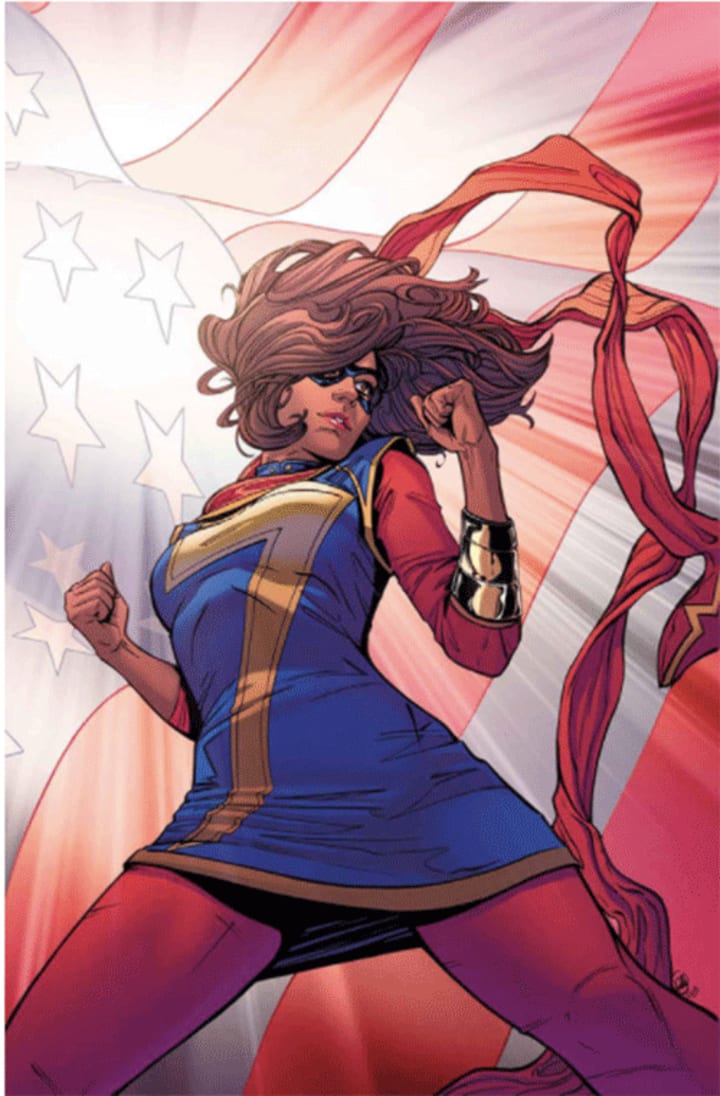
Even Kamala didn't sell well. [Credit: Marvel Comics]
Even more disturbing, no part of the range was safe from this sales slump. Popular 'Legacy Hero' books like Ms. Marvel? Just 19,870 copies sold, comparing with 30,916 at this time last year. Amazing Spider-Man — Marvel's biggest brand — is down to just over 61,000. Jason Aaron's popular Star Wars saw sales drop to under 75,000 (which, for Star Wars, is shocking; a year ago, it was pretty much guaranteed to exceed 100,000 every issue).
What's going on?
Serious Competition from DC
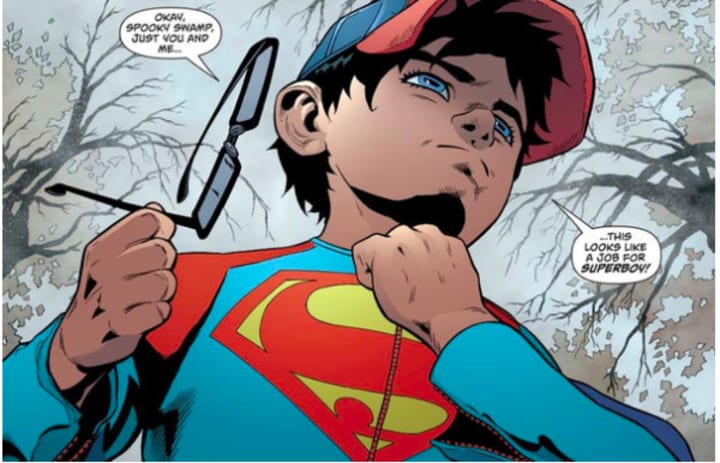
"Rebirth" moves into phase two. [Credit: DC Comics]
Speaking at ComicsPRO, an opportunity for retailers to meet with the publishers, Marvel made it very clear where they (publicly) consider the blame to lie: with the distinguished competition. DC's "Rebirth" relaunch has proved incredibly popular — so much so that, by August 2016, we saw comic book sales rocket to a 20-year record! Marvel particularly assigns blame to the reduced cover price of $2.99 that's accompanied "Rebirth", which they insist isn't financially viable, and on DC's returns policy. With DC's prices due to rise to $3.99 in April, Marvel has to be hoping the market will balance out.
Interestingly enough, another competitor's success in February hints that Marvel may have a point. February was the 25th anniversary of Image Comics, and by way of celebration, they slashed prices to an astounding 25 cents. No surprise, that completely warped the market in February, giving Image a unit share of 18.13% — but a dollar share of only 9.58%.
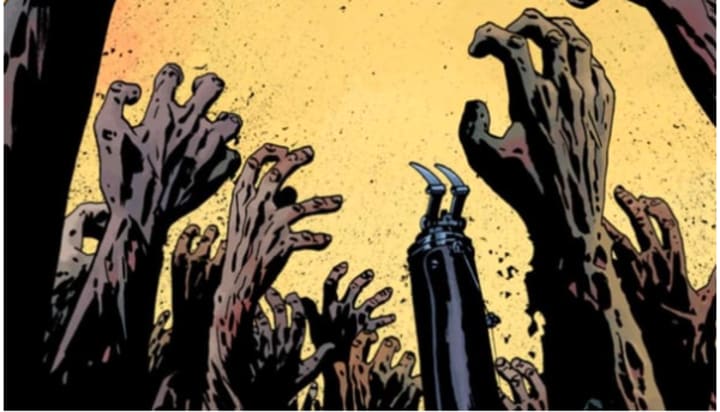
Even 'The Walking Dead' was at 25 cents. [Credit: Image Comics]
It's pretty clear that price is one of the most important issues in the current market. While their competitors cut prices, Marvel's range has stuck between $3.99 and $4.99, more frequently pricing comics at the upper limit of that range. That means each comic sold brings more money to Marvel than to their rivals, but the success of DC and Image suggests there's a trade-off between prices and sales.
Here's the problem: that's a very convenient solution, in that it essentially makes Marvel out to be the victim of noncompetitive pricing, and means there's little the publisher can do about it. According to Bleeding Cool, retailers at ComicsPRO were pretty much unanimous at giving Marvel an eye-roll for the argument.
Dissatisfaction with Marvel's Direction
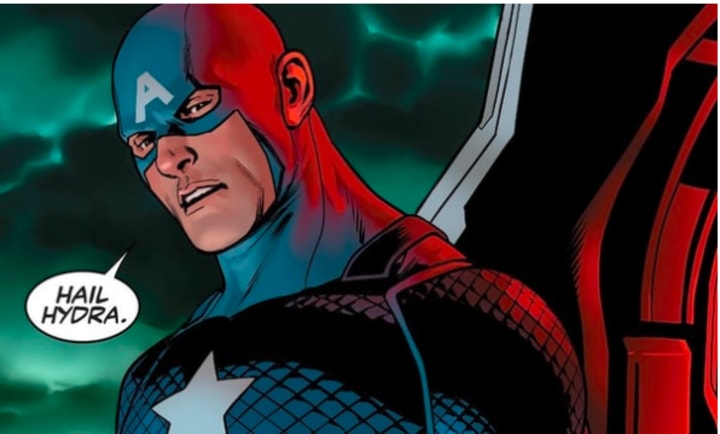
He set the Internet ablaze. [Credit: Marvel Comics]
Go to any Marvel Facebook group, though, and price isn't the first thing you'll hear complained about. For years, Marvel has essentially dined out on using controversy to boost sales — whether by turning Steve Rogers into an agent of Hydra, giving Jane Foster the power of Thor, or pitting the X-Men and the Inhumans against one another in a year-long arc. That approach has worked for a long time, but there are signs the wind is changing.
I actually love Marvel's political awareness, viewing it as art at its best. The problem, though, is that right now people seem to be wanting something a little more basic from their comics. People aren't wanting more politics; in the aftermath of the most divisive election in US history, they're wanting comics to be how they escape from politics.
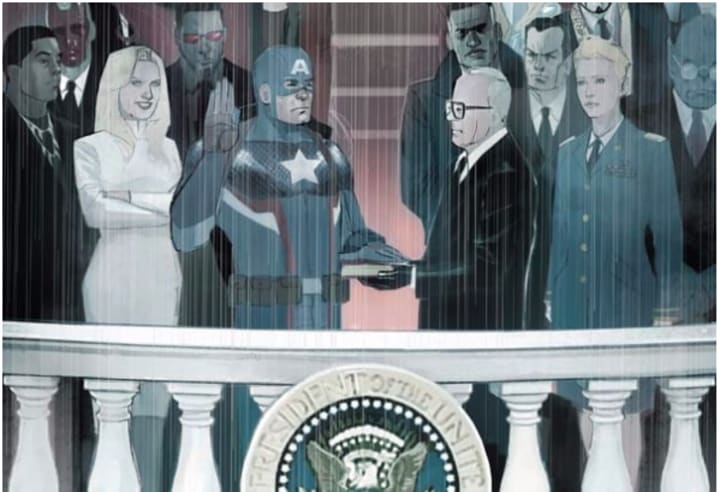
A politically-charged scene from 'The Oath'. [Credit: Marvel Comics]
Take sales of Nick Spencer's heavily politicized Captain America: Steve Rogers. While it's normal for every issue to sell less than the one before, the trend here looks pretty disturbing:
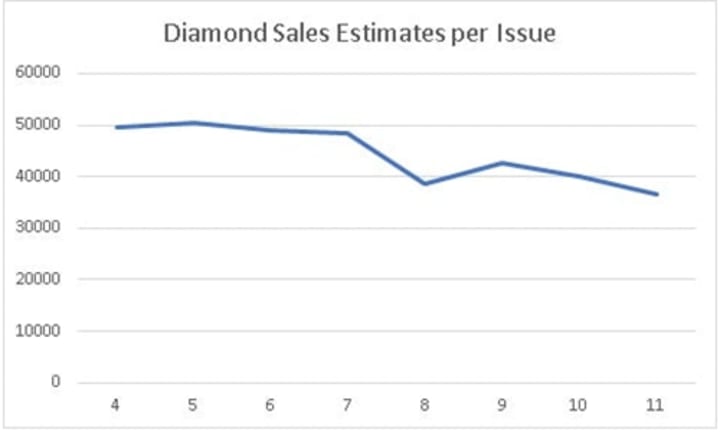
Given this is the book that's effectively setting the scene for "Secret Empire", this year's politically-inspired Summer event, that downward curve should leave Marvel pretty worried.
Marvel seems to have recognized this. Although the company's committed to arcs like "Secret Empire" in the short-term, there are strong rumors the company is planning to change focus; they'll be moving to a more streamlined, 'back-to-basics' approach. That's already accompanied by the upbeat "ResurrXion" of the #XMen and #Inhumans franchises, while 'Legacy Heroes' will be balanced out by a returning focus on classic characters. There have even been strong hints that Wolverine is about to be resurrected.
The sales figures suggest that change in direction can't happen quickly enough.
Strange Decisions
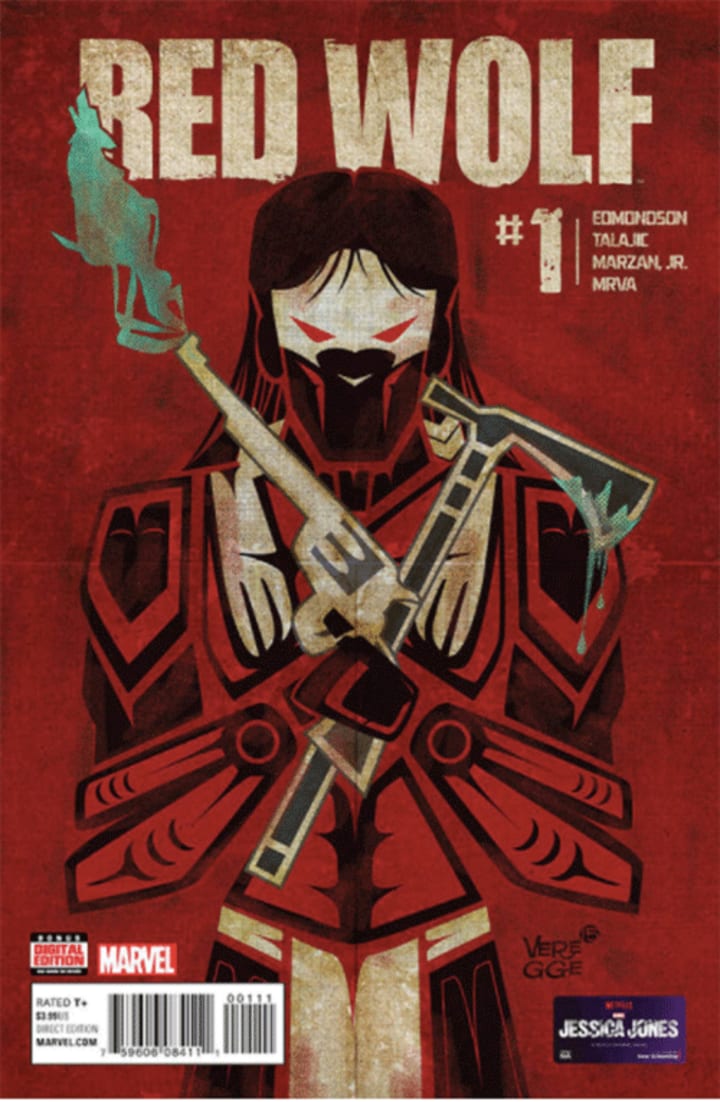
Did anyone ask for this? [Credit: Marvel Comics]
At the same time, it has to be said that some of Marvel's decisions have seemed pretty much inexplicable to retailers. Why are we getting secondary series based around characters like Black Panther, rather than concentrating on the main books? Why has Deadpool inspired spin-offs that nobody asked for, like Solo and Slapstick? And who were books like Red Wolf aimed at in the first place? Some series have performed so poorly that Marvel didn't even bother to announce the cancellation; Red Wolf and Starbrand and Nightmask were quietly shut down without any fanfare.
No surprise, retailers are pretty frustrated with Marvel right now. As one retailer fumed to Bleeding Cool:
"Marvel if you truly think my store’s money was tied up by DC then you are wrong. I have too many first issues of Foolkiller, Mockingbird 1, Nighthawk’s series, Solo 1, Mighty Captain Marvel 1, and more on hand. Mockingbird, Nighthawk, Solo, and more are in the dollar bin still untouched."
Here's the disturbing thing; because retailers purchase those books from Diamond distributor, those unsold copies are included in the sales figures. But they're actually just sitting on shelves.
A Switch to Digital
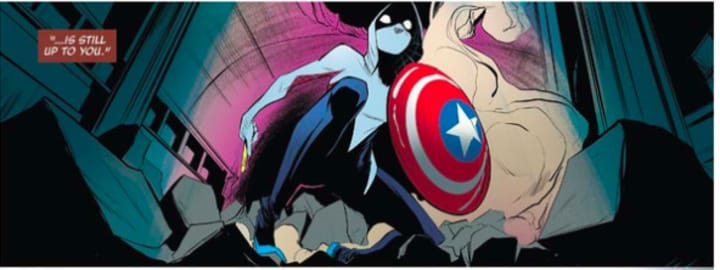
One comic believed to sell better digitally. [Credit: Marvel Comics]
Retailers may not like it, but there is one other factor; a switch to digital. There's no way for us to actually knowing how well a book performs on the digital market, whether in ComiXology or through the Marvel Store. But for years there have been rumors that some books actually sell better digitally than in paper format.
Until recently, every time you bought a physical Marvel comic you also got a code that gave you a free digital copy; as a result, a lot of fans bought paper knowing they'd get the digital as a bonus. In January, though, Marvel stepped away from that approach. Instead, Marvel now choose a couple of 'bonus comics' to be available each week — typically comics that were released months ago. In January, for example, one of the key titles was Civil War II #0, the issue that launched last year's Summer event. Given the event had just finished, it basically made that digital copy worthless. Fans and retailers alike were appalled.
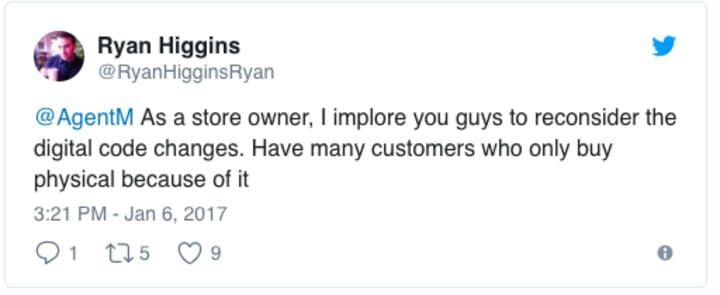
This decision hints that Marvel feel the digital platform is now secure, and may well consider sacrificing physical sales for digital ones — a terrifying prospect for the retail market. At the same time, though, the rumors of a change in direction over at Marvel suggest we shouldn't overestimate the importance of digital. After all, if digital sales were different to physical sales across the whole range, Marvel wouldn't be canceling books and changing their approach. Some individuals books may well perform better digitally, but Marvel's own actions suggest that the difference isn't yet too marked.
February 2017 should really serve as a shock to Marvel's system, warning them that something just isn't quite clicking right now. Sure, it was an exceptional month for retailers at a lower price point, like DC & Image. But the overall trend for Marvel is a disturbing one, and I'm glad we're hearing rumors of a change in direction. I suspect it's needed.
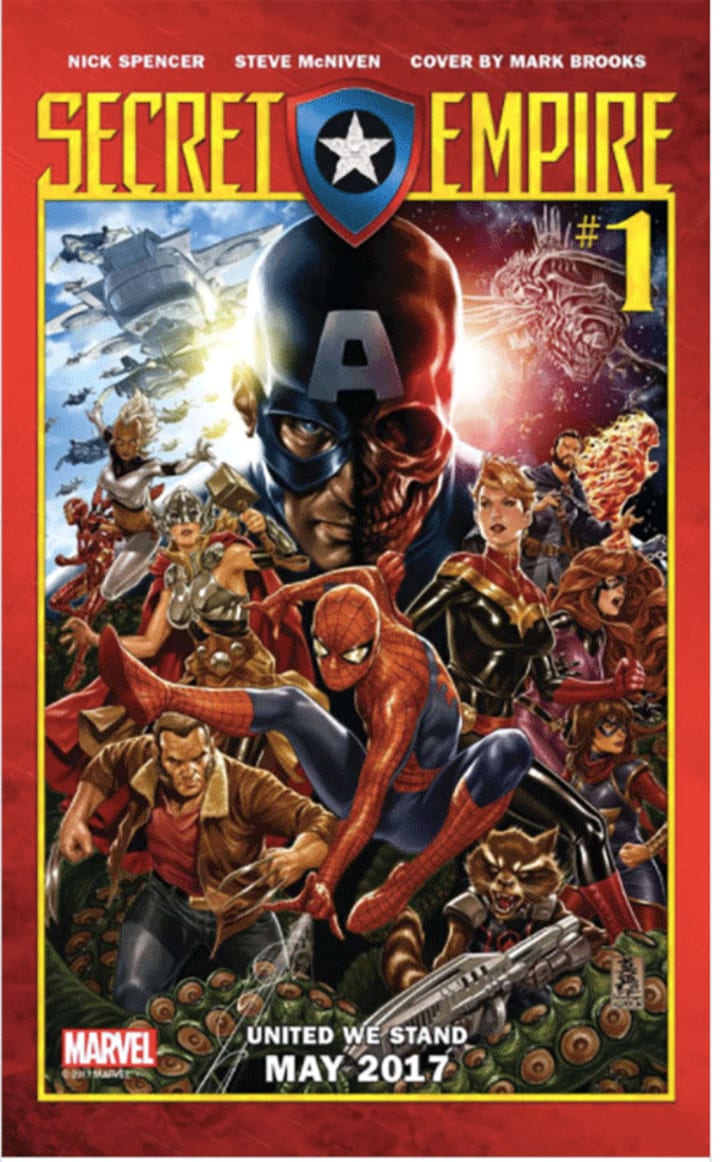
Credit: Marvel Comics
(Sources: Bleeding Cool: 1, 2; Comics Beat; Comichron)
About the Creator
Timothy Bacon
Timothy Bacon has worked in broadcast media, interactive media, advertising and branded entertainment as a writer, photographer and creative director. He is the founder of Mutagenic Studios Interactive a creative production company.






Comments
There are no comments for this story
Be the first to respond and start the conversation.